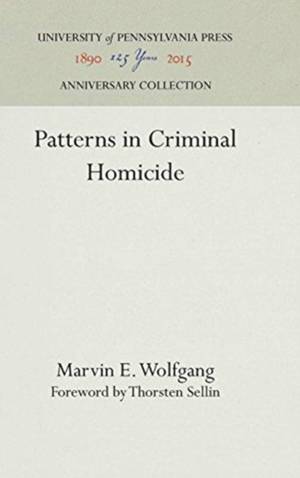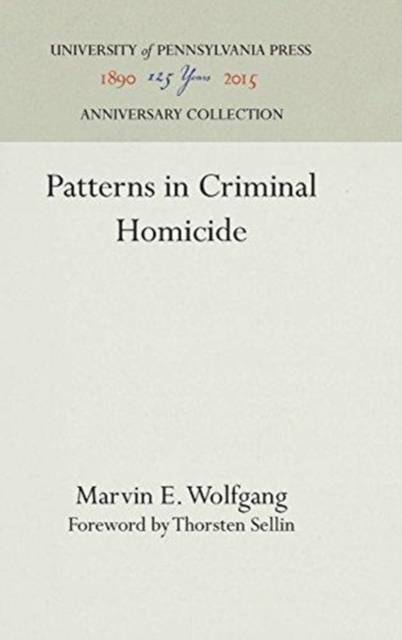
- Retrait gratuit dans votre magasin Club
- 7.000.000 titres dans notre catalogue
- Payer en toute sécurité
- Toujours un magasin près de chez vous
- Retrait gratuit dans votre magasin Club
- 7.000.0000 titres dans notre catalogue
- Payer en toute sécurité
- Toujours un magasin près de chez vous
158,95 €
+ 317 points
Description
This volume is a statistical and sociological analysis of one of the leading causes of death in the United States. Combining original research and a review of all major previous studies on criminal homicide in America, this study attempts to discover and to analyze patterns in criminal homicide from among almost six hundred cases that occurred in the city of Philadelphia between January 1, 1948, and December 31, 1952.
The primary source of data utilized by Marvin E. Wolfgang was the files of the Homicide Squad of the Philadelphia Police Department. Answers were sought to a series of questions regarding 588 victims and 621 offenders involved in criminal homicide with respect to the following: race, sex, and age differences; methods and weapons used to inflict death; seasonal and other temporal patterns; spatial patterns; the relationship between the use of alcohol and homicide; the degree of violence in homicide; motives; the interpersonal relationship between victim and offender; homicide occurring during the commission of another felony; victim-precipitated homicide; homicide-suicide; unsolved homicide; the tempo of legal procedure; court disposition; and insanity as a factor in homicide. The broad range of material examined in this volume makes it one of the most comprehensive studies undertaken in recent years. Although dealing basically with records of homicide accumulated in Philadelphia, Patterns in Criminal Homicide has implications that hold true for every large urban community. It is a work of utmost importance to the student of sociology because of its general sociological perspective; to all students of criminology; to the police, especially the homicide division of any police department; to law students, lawyers, and judges; and to those agencies in the community concerned with the control and prevention of violent crime.Spécifications
Parties prenantes
- Auteur(s) :
- Editeur:
Contenu
- Nombre de pages :
- 432
- Langue:
- Anglais
- Collection :
Caractéristiques
- EAN:
- 9781512808711
- Date de parution :
- 29-01-58
- Format:
- Livre relié
- Format numérique:
- Genaaid
- Dimensions :
- 156 mm x 234 mm
- Poids :
- 771 g

Les avis
Nous publions uniquement les avis qui respectent les conditions requises. Consultez nos conditions pour les avis.






